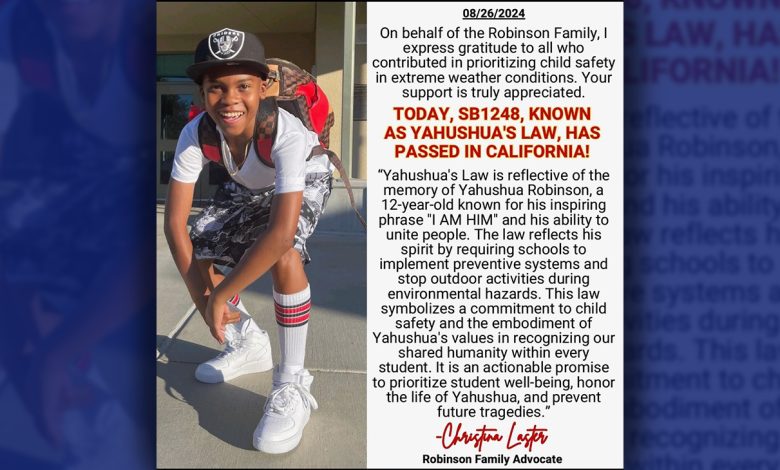New California Law Will Protect Students During Extreme Weather

By Edward Henderson, California Black Media
Proposition (Prop) 6 would repeal language in the California Constitution that prohibits “involuntary servitude except to punish crime.”
Instead, it will replace it with language that prohibits slavery and involuntary servitude absolutely.
The amendment would also prohibit the California Department of Corrections and Rehabilitation from disciplining any incarcerated person for refusing a work assignment and authorize the department to award time credits to incarcerated persons who voluntarily participate in work assignments.
To gain a greater understanding of the proposition and the experience of incarcerated individuals impacted by the current language, California Black Media spoke with Dr. Tanisha Cannon, Managing Director of Legal Services for Prisoners with Children (LSPC).
“There are really two main messages for this to be a yes vote,” said Cannon. “The way that the Constitution names what’s going on in these prisons is called involuntary servitude. Involuntary servitude is just another name for slavery. That means that there’s a force and there’s coercion. So, the main message here is that involuntary servitude is slavery.”
So far, eight states, including California, have made provisions in their constitutions permitting involuntary servitude, but not slavery, as a criminal punishment. According to the National Conference of State Legislatures, 34 states have “earned time” credits that are awarded for participating in or completing education, vocational training, treatment, and work programs. Time credits can later be applied towards early release from secure custody.
The Anti-Recidivism Coalition has also been on record supporting Prop 6, stating that, “More than 94,000 Californians are currently enslaved in state prison. African Americans account for 28% of the prison population despite making up less than 6% of California’s overall population.”
Of those roughly 90,000 inmates, the state’s prison system employs nearly 40,000 who complete a variety of tasks including cleaning, cooking, firefighting, construction and yard work. Most of these workers earn less than 74 cents an hour, excluding the firefighters who can make up to $10 a day. State law permits the corrections department to pay up to half of the current minimum wage in California ($16).
Eighty percent of the employees at LSPC have been directly impacted by the prison-industrial complex. Cannon’s brother works there as well and was in prison at the age of 16 experiencing first-hand how forced labor can negatively impact an individual’s psyche.
“My grandmother passed away and he received that news in the evening. On the outside, you’d get some grieving time. That wasn’t the case for him,” said Cannon.
“He had to wake up at five o’clock the next morning. So, imagine learning that the woman who raised you just passed away. You’re due for work at 5 a.m. in the morning to operate heavy machinery and you cannot say that you don’t want to work because there’s no excused absence in prison.”
So far, there hasn’t been any organized opposition to Prop 6 in California.
A “yes” vote supports amending the state constitution to prohibit slavery and involuntary servitude as punishment for a crime and authorize the Department of Corrections and Rehabilitation to award credits to incarcerated persons who voluntarily participate in work assignments.
A “no” vote opposes amending the state constitution to prohibit slavery and involuntary servitude as punishment for a crime.






